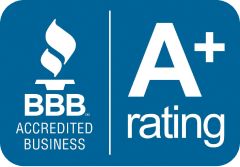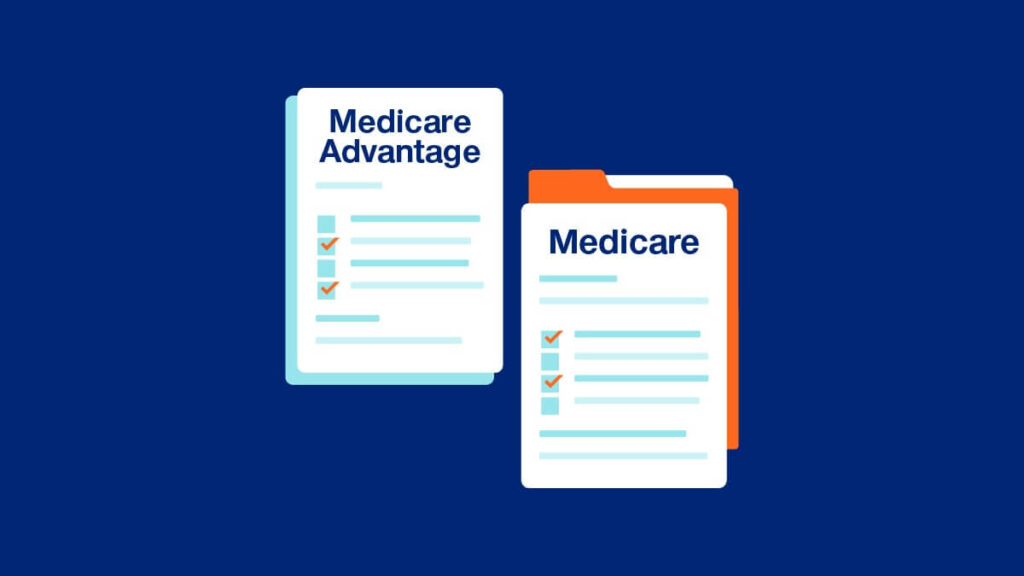The qualifications for receiving either traditional Medicare or Medicare Advantage are the same. However, Medicare Advantage is private insurance and has a few unique advantages over traditional Medicare.
Private health insurance has been available as an option to traditional Medicare since the 1990s. Medicare Advantage plans are the new name for what used to be known as Medicare Part C.
While the original Medicare program is still preferred by the vast majority of Medicare recipients, 34% of 2019 enrollees opted for Medicare Advantage instead. About a third of 2016’s first-year Medicare enrollees opted for an Advantage plan. While both programs are helpful, they do so in different ways.
Differentiating Original Medicare and Medicare Advantage
The federal government foots the bill for your Medicare expenses if you have original Medicare. Medicare Advantage plans, on the other hand, are private health insurance programs that have been certified by Medicare to provide its members with benefits. Medicare Advantage Plans might be one of several distinct varieties:
- Insurance strategies provided by an HMO (healthcare maintenance organization). Except in cases of emergency or urgent care, patients with HMOs are only able to see doctors and go to hospitals that are part of the plan’s network. Accessing certain diagnostic procedures or seeing a specialist may necessitate a referral from your primary care physician under these plans.
- Advantages of PPO plans. When enrolled in a PPO plan, members have access to a wide range of healthcare professionals and facilities that make up the plan’s network. Seeking care from a doctor who is in your insurance plan’s network will cost you less than seeing a doctor who is not.
- Individuals that have their own private PFFS plan. For your medical care, these plans will pay a predetermined sum to your doctors, nurses, and hospitals. Those who select this option can use their PFFS plan’s network of doctors and hospitals. Plans like these often outline a provider network within which members can make their healthcare decisions. You can save money by using these service providers instead of going outside the network.
- Medical Expenses Can Be Saved With MSA These plans are quite similar to HSAs that don’t involve Medicare in that you get to pick the doctors and hospitals you want to work with. An MSA combines a health insurance policy with a high deductible with a savings account for medical expenses. High-deductible health plans typically have very high annual deductibles before they begin paying for any of your healthcare expenses. However, if your health insurance plan offers a medical savings account (MSA), you can use the money in it to pay for healthcare expenses before your deductible is met.
According to Medicare.gov, in addition to having Medicare Parts A and B, you must also reside in the service region of your prospective plan to enroll in a Medicare Advantage Plan.
Even though Medicare and Medicare Advantage have different payment and coverage structures for the same essential healthcare services, they are both mandated to do so by law.
Although Medicare Advantage didn’t launch until 1995, similar schemes have been around since the 1970s. The primary difference between Medicare and Medicare Advantage is that the latter is a private health insurance program that the government partially subsidizes.
Medicare vs. Medicare Advantage: Differences
Visits to the doctor and stays in the hospital are just two examples of the kinds of basic medical care charges that are covered by Medicare and Medicare Advantage. The premiums, deductibles, copays, and other fees associated with different plans might be somewhat different. Some notable distinctions between the two courses are as follows:
- Part A (hospital insurance) and Part B (medical insurance) are all that make up the original Medicare plan. Medicare Part D is the prescription drug coverage option for those who need it. Medicare Advantage plans may offer additional benefits beyond those provided by traditional Medicare, such as coverage for prescription drugs.
Original Medicare can be used at any facility that participates in the Medicare program. Some Medicare Advantage plans require you to see doctors who are part of their provider network.
Medicare Advantage plans typically have reduced out-of-pocket expenditures.
Services provided under the initial Medicare programs are priced according to government guidelines. The premium you pay for a Medicare Advantage plan may vary from one insurer to the next because of the deals they strike with Medicare. The rate could be lower than the standard Medicare fee or greater.
Why Choose Medicare Advantage?
Advantage programs for Medicare recipients must provide at least as many services as traditional Medicare. The government oversees these programs to make sure they provide adequate coverage for essential medical services. However, charges and copayments for specific services may vary. Medicare Advantage may be the best option for certain beneficiaries. Reasons to select Medicare Advantage:
- It’s easier to make a choice now. In 2018, Medicare recipients had a median selection of 21 plans, while in some areas there were more available.
Some plans could have cheaper premiums than others. Premium-free options exist, albeit they typically come with higher co-pays.
Coverage for medication prescribed by a doctor is common. Unless you enroll in Medicare Part D, your Original Medicare won’t pay for your prescription medicines. Most Medicare Advantage plans in 2019 covered medications.
Even for costly services, you can end up paying less. Your maximum out-of-pocket expenses must be capped by Medicare Advantage plans. There is no cap on spending with original Medicare; all expenditures must be covered. The typical Medicare Advantage beneficiary had a $6,700 out-of-pocket maximum in 2020.
Many medical procedures that traditional Medicare will not pay for are covered. Plan documents should be compared and reviewed because each plan is unique. However, dental and eye care are typically included in Medicare Advantage plans. In contrast, traditional Medicare pays only for doctor visits and hospital stays.








